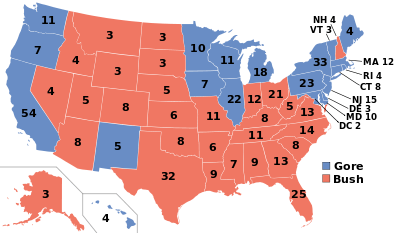Harry Browne presidential campaign, 2000
| Harry Browne for President | |
|---|---|
| Campaign | U.S. presidential election, 2000 |
| Candidate |
Harry Browne Investment advisor Art Olivier Mayor of Bellflower, California (1998–99) |
| Affiliation | Libertarian Party |
| Status | Lost election |
| Headquarters | Arlington, Virginia |
| Key people |
Art Olivier (Running mate) |
| Website | |
| http://www.harrybrowne.org/hb2000/ | |
The 2000 presidential campaign of Harry Browne, investment banker and 1996 nominee of the Libertarian Party began on February 14, 2000.[1] On the third night of the 2000 Libertarian National Convention (July 3), Browne won the nomination on the first ballot over Don Gorman, Jacob Hornberger, and Barry Hess, with 493 votes (56.15% of the ballot), becoming the first Libertarian Party candidate to be nominated twice for President.[2] Art Olivier (former mayor of Bellflower, California) was nominated as Vice President on the 2nd ballot.
The ticket had ballot status in all 50 states and in the District of Columbia. Due to a dispute with the Arizona wing of the Party, L. Neil Smith was placed on the ballot instead of Browne. Admitting that he had little chance of winning, he stated that any vote for him instead of George W. Bush or Al Gore was an "endorsement, a statement, a declaration on behalf of smaller government."
Campaign
Browne endorsed letting people having the option to opt out of social security, along with selling off unneeded and unconstitutional federal assets to provide lifetime retirement accounts. He also advocated the repealing of gun laws, the end to the War on Drugs and federal welfare, the complete departure of federal government involvement in health care and education, with a complete repeal of the income tax. He advised for a foreign policy in the vein of Washington and Jefferson, that "wishes good will toward people everywhere and is a threat to no other country.", with a preference for a stronger defense instead of strengthening the national offense. He advocated for the Internet to be kept free of taxation and censorship.[3]
From October to Election Day, he made 15 national TV appearances, 18 national radio appearances, 19 local TV appearances, 98 local radio appearances, 40 press interviews, 14 Internet interviews or articles, and 20 speeches, with five articles written and published.[4]
The campaign had two main goals, related more to the party than the election.[5]
- Surpass a million votes for the first time.
- Outpoll Pat Buchanan and the Reform Party.
However, they failed in achieving either goal.
Results
Browne received 384,431 votes (0.36%), finishing in 5th place. He received 101,328 less votes than he did in his campaign four years prior, while finishing 64,464 votes behind Pat Buchanan and 2,498,524 behind Ralph Nader for third.
References
- ↑ http://www.harrybrowne.org/2000/CampaignJournalFebruary.htm
- ↑ Werner, Erica (July 3, 2000). "Libertarians nominate Browne for presidency". Pittsburgh Post-Gazette. Associated Press. Retrieved August 6, 2016.
- ↑ http://www.harrybrowne.org/articles/CampaignPlatform2000.htm
- ↑ http://www.harrybrowne.org/2000/Phillies.htm
- ↑ http://www.harrybrowne.org/2000/WasItWorthIt.htm
